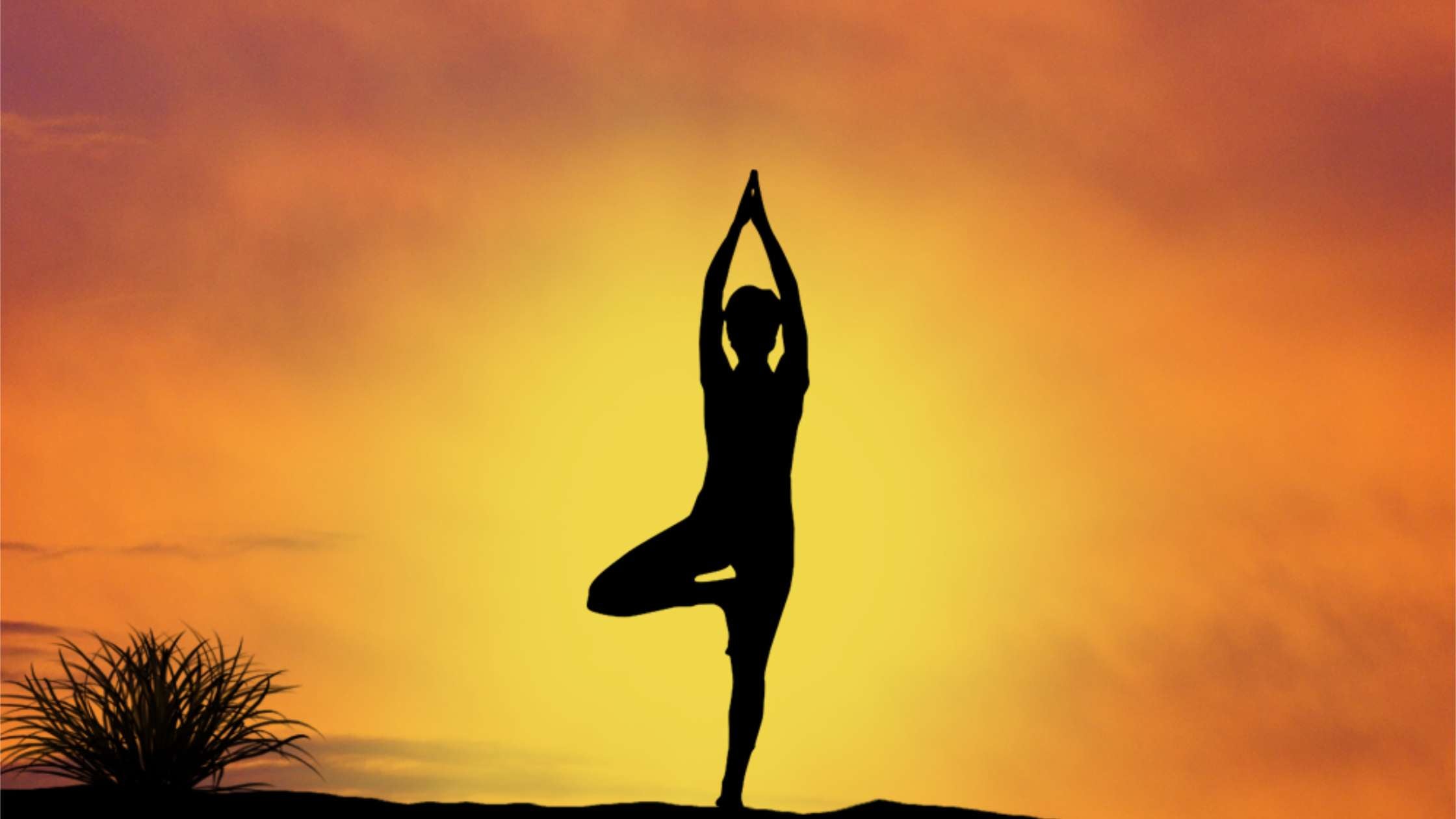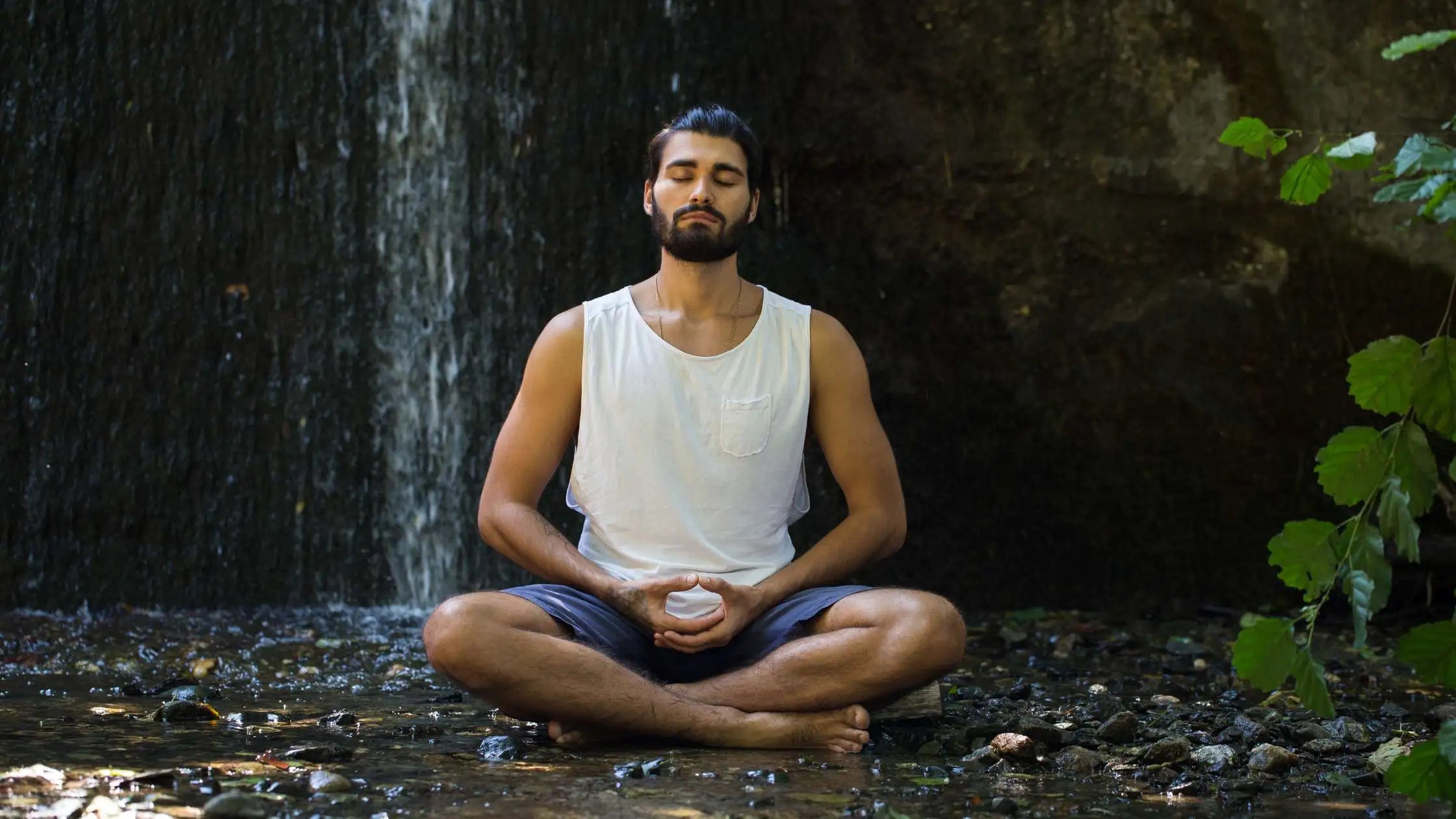You must know someone or it could also be you who is struggling to maintain good health. There are heart issues like cholesterol imbalance and mental health issues like stress and depression, which needs to be solved with natural and effective solutions. Yoga, meditation and Ayurveda offer holistic and natural approaches to improve both physical and mental health. When these three practices get combined, it can help you achieve a balanced and a healthier lifestyle. Let’s explore how these three miraculous practices can help in tackling the physical and mental health issues.
Yoga for Cholesterol and Heart Health
Healthy functioning of heart health is imperative for an individual to lead a disease free life, but heart health issues especially high cholesterol are becoming more and more common. They are still manageable with natural methods like yoga, ayurveda and meditation. Yoga has a variety of simple yet powerful poses that help in regulating cholesterol levels and improve cardiovascular function.
Why Yoga for cholesterol?
Yoga helps in improving blood circulation and is effective in lowering LDL (bad cholesterol) while promoting HDL (good cholesterol).
Poses like Setu Bandhasana and Bhujangasana help enhance metabolism and support heart health. By incorporating yoga for cholesterol in your routine, you can reduce the risk of many heart diseases all while strengthening your body naturally.
Simple Yoga Poses for Heart Health
- Bridge Pose (Setu Bandhasana)- Improves circulation and reduces heart strain.
- Cobra Pose (Bhujangasana)- Opens the chest, promotes heart health, and reduces cholesterol buildup.
- Seated Forward Bend (Paschimottanasana)- Aids digestion and helps regulate cholesterol level.
Meditation for Stress and Mental Health
Meditation has always been an integral part to achieve mental peace and harmony, it is a foundation of holistic health for centuries. It helps in relaxing the mind while also building resilience against mental health issues like stress, depression and anxiety.
How does Meditation Help?
Meditation aids in regulating and lowering stress hormones like cortisol, improving focus and promoting emotional balance. Being consistent while meditating can enhance mental clarity and reduce the symptoms of anxiety and depression.
When it is combined with Ayurveda for depression, meditation can be a powerful tool for emotional healing and mental endurance.
Simple Meditation Techniques-
- Breathe Awareness- You must focus on deep and slow breathing for atleast 10 minutes.
- Meditation- Listen to calming and serene audios to relax the mind to feel the calming sensation.
- Mindful Meditation- Relax your mind without observing anything, be present in the moment to reduce stress naturally.
Ashwagandha for Mental Health
Ashwagandha is a revered herb in Ayurveda which plays a remarkable role in supporting mental health and lowering stress. Ashwagandha for mental health has again and again proved its efficiency to promote a mind which can fight off the stress.
Ashwagandha helps in reducing cortisol levels which are responsible for stress and anxiety. Regular intake of Ashwagandha improves sleep quality and boosts emotional resilience while also supporting mental clarity and cognitive function.
Using Ashwagandha for mental health along with yoga and meditation can be a best take for stress reduction as it is a holistic and natural solution for managing stress and anxiety.
Ayurveda for Depression
Depression is a deadly mental health issue which could push an individual to extreme extents. It is more than just an upset mood,it impacts health and everyday life; for which Ayurveda offers natural solutions to focus on balancing the body and mind naturally.
How does Ayurveda Help?
Ayurvedic herbs like Brahmi, Ashwagandha and Shatavari help in reducing mental fatigue and building emotional strength.
Incorporating Ayurvedic practices like Abhyanga (self-massage) and herbal teas can calm your nervous system. Combining Ayurveda with Yoga and Meditation promotes a holistic healing process. Ayurveda for depression addresses the root cause of emotional imbalance and helps in achieving peace and harmony.
How to Incorporate Yoga and Meditation?
- Small Beginning- Start with 10 minutes of yoga and meditation everyday and increase the duration slowly.
- Morning Routine- Perform gentle yoga stretches and asanas to get calmer for the day.
- Evening Relaxation- Do some restorative yoga poses to relax the mind from the stressful day.
- Combine Ayurveda- Start the intake of Ayurvedic herbs like Ashwagandha for a mental health routine.
Conclusion
Yoga and meditation are more than just physical practices, are a road to well-being. It helps in managing cholesterol, reducing stress and supporting mental health with their simple and natural solutions. When it is combined with Ayurveda and powerful herbs like Ashwagandha, it can create a balanced and healthy lifestyle. Start with small and remain consistent to see the effects of meditation and yoga for cholesterol, stress and heart health.
Frequently Asked Questions (FAQs)
1. How does yoga help lower cholesterol levels?
Yoga helps improve blood circulation, reduce LDL (bad cholesterol), and promote HDL (good cholesterol). Specific poses like Bridge Pose and Cobra Pose support heart health by stimulating metabolism and reducing stress.
2. Can meditation really improve mental health?
Yes, regular meditation reduces cortisol levels (stress hormone), improves focus, and promotes emotional balance. It’s an effective tool for managing anxiety, stress, and depression.
3. How does Ayurveda help with depression?
Ayurveda addresses depression by balancing the body and mind. It uses natural herbs like Ashwagandha and Brahmi, self-care practices like Abhyanga (self-massage), and lifestyle changes to bring emotional stability.



















